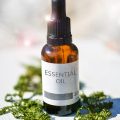
Are you one of the many people that break out after using certain skincare products or sun exposure? If so, you’re not alone! A lot of people that break out with acne and blotchy patches on their skin in these situations tend to refer to this as sensitive skin. However, it is more likely to be from using inappropriate skincare products for your skin type or from certain habits. The good news is that there are things that you can do about this!
The first step is to find out whether or not you actually have sensitive skin. Sensitive skin can redden easily from temperature changes, both hot and cold. A rash may form just from a little dirt or skincare products that are too strong for your skin. Sensitive skin is not actually a term that dermatologists use a skin issue; what most people describe as sensitive skin is actually an underlying issue, such as eczema or rosacea. The best way to figure out if there is such an issue causing your skin irritation is to visit your dermatologist.
There are a number of ways that one can take care of their sensitive skin. Simple skincare routines, those that limit the number and types of products, are best in this situation. Over time, sensitive skin requires strengthening in order to increase its tolerance and reduce its sensitivity. The tips below are great for sensitive skin, but for other skin types, too! So if you’re looking for how to have healthy skin, read on!
5 Tips For Caring for Your Sensitive Skin
Keep your skin hydrated
If you suffer from sensitive skin, you may have noticed that it can get dry easily, further increasing the symptoms you experience. To help combat this, and to keep your skin hydrated, it is important to make sure that you are drinking at least 8 glasses of water each day. Not only will this help your skin, but there are many other benefits to your health when you drink plenty of water. If you’ve noticed that your skin appears more wrinkled when it is dry, this will help! In addition to staying hydrated, using a moisturizer will help keep your skin protected and lock in that moisture. Make sure to choose one that is lightweight and hypoallergenic, such as this anti-wrinkle, sensitive skin one from Eucerin or this one with sunscreen from La Roche-Posay.
Eat food that is good for your skin
Since we have discussed the benefits of hydration for your sensitive skin, I’m sure you’ve guessed what kinds of food are best for your skin: water-rich foods such as vegetables or fruits. Not only do these aid in hydration, they also contribute vitamins and minerals that are good for your health and skin. There are also foods that can increase sensitivity, which includes spicy food, alcohol, and caffeine. It is best to avoid these things if possible and especially if you’ve noticed your skin getting worse after having them. To learn more about foods that benefit your screen, check out our post on the best anti aging foods.
Limit the amount of sun exposure you get
If you have sensitive skin, you have likely already noticed that it turns red and burns easily. The first step to preventing this is to make sure that you always wear sunscreen when going out. (If you want to learn more, check out our post on the benefits of sunscreen). When you are applying sunscreen, don’t forget your lips! It’s important to get a lip balm with sun protection. Aside from sunscreen there are a few other things that you can do. These include using a sun umbrella, wearing sunglasses and a hat, and limiting the time you spend in the sun where possible.
Keep your skin protected all the time
While the sun has clear, visual effects on sensitive skin, it is not the only thing your skin needs protection from. While indoors, air-conditioning and heaters can irritate and dry out your skin even further. This underlines the fact that applying moisturizer frequently is important to protect your skin in different conditions, whether you’re inside or outdoors.
Use products without artificial colors and fragrances
Many skincare products add coloring and fragrances to increase their appeal on the shelf. While a color or fragrance can be nice, they do not add anything beneficial to the product. Not only that, but they are more likely to cause an allergic reaction or increase its sensitivity, resulting in breakouts and other skin problems. When shopping for skincare products, make sure to check for ones that do not add these things. Additionally, there are products that are made specifically for those of us that have sensitive skin.






One Comment